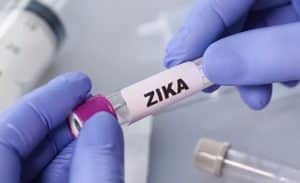Podcast: Play in new window | Download (209.7MB)
Subscribe: Apple Podcasts | TuneIn | RSS | More

Mosquitos carrying the Zika virus are in the United States and infections are on the rise. Microcephaly appears to be the most devastating consequence and little is known how to stop it.
Scientists at Texas Biomed have begun several projects aimed at understanding the Zika virus and its impact on newborns.
Suzette Tardif, Ph.D., and Jean Patterson, Ph.D., talk about efforts to figure out how the virus works and how scientists can best test therapies to intervene.
Discovered in Uganda in 1947, Zika virus has been impacting lives for more than half a century. While Africans have built up an apparent immunity, the Western Hemisphere was left relatively unscathed until near the end of 2013 when cases of Zika virus and its most dangerous known consequence of infection, microcephaly, were reported in Brazil.
Mosquitos carrying the Zika virus are now in the U.S. Scientists at Texas Biomed have started several projects aimed at understanding this relatively unknown disease and are leading efforts to figure out how the virus works and how best we can test therapeutic strategies.
They hope to:
1. Develop an animal model to determine a timeline for infection and answer the questions: how long will Zika last in the body? When will it be most problematic for pregnant women, and how long do men have to wait before having sexual contact?
2. When vaccines and therapies are being developed, test them in animal models that mimic human immune and gestational systems to make sure that the vaccine offers protection against the various strains of the disease and does no harm to mothers or unborn children.
Applying the expertise of Texas Biomed scientists in virology, immunology, genetics, and pregnancy in several different nonhuman primate models will help lead to a better understanding of how Zika virus impacts fetal development. Texas Biomed scientists believe that different nonhuman primate models for this disease have the potential to reveal unique consequences of Zika virus infection.
Zika virus is a long-term health issue for the United States, and it is imperative we know more.
